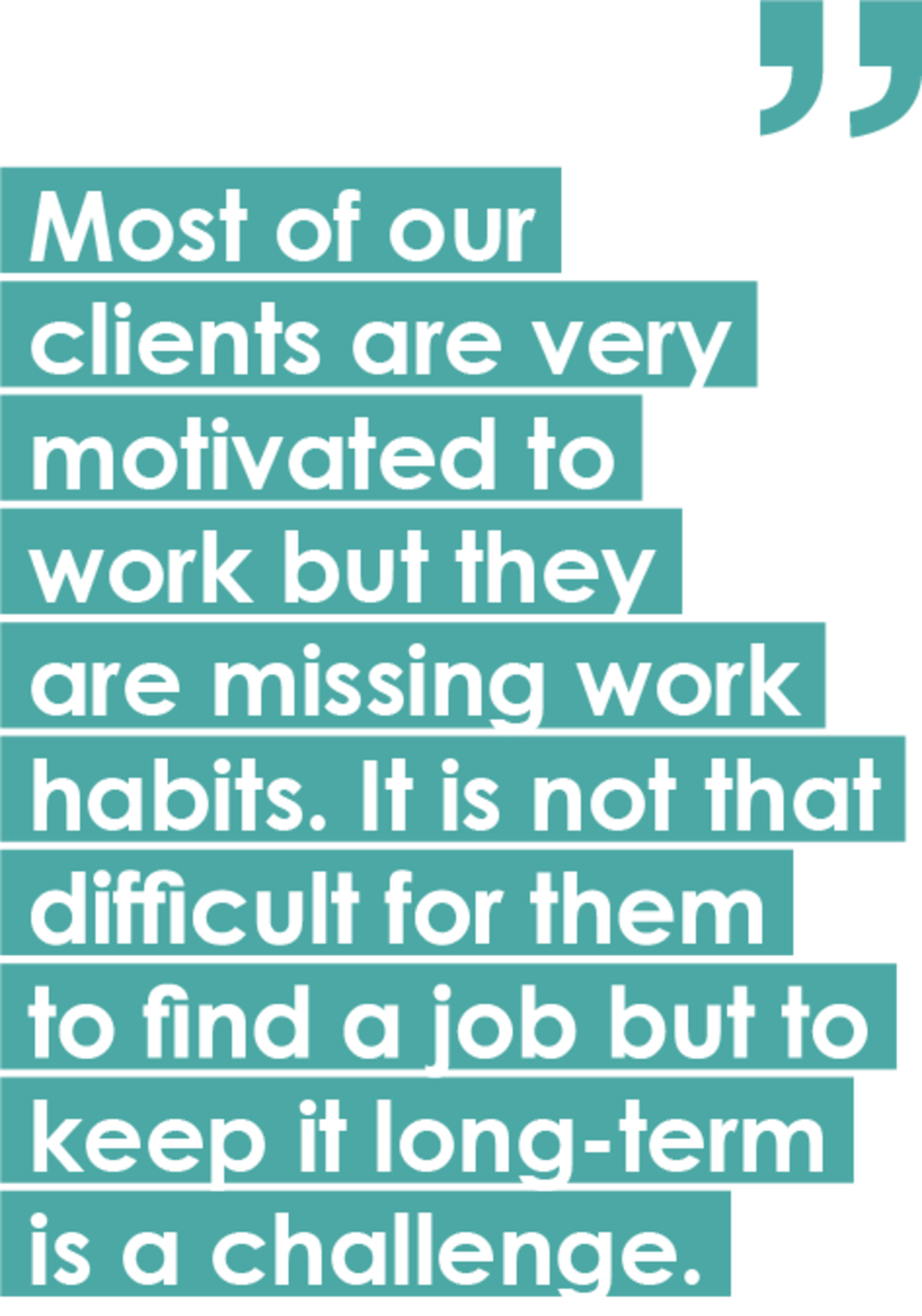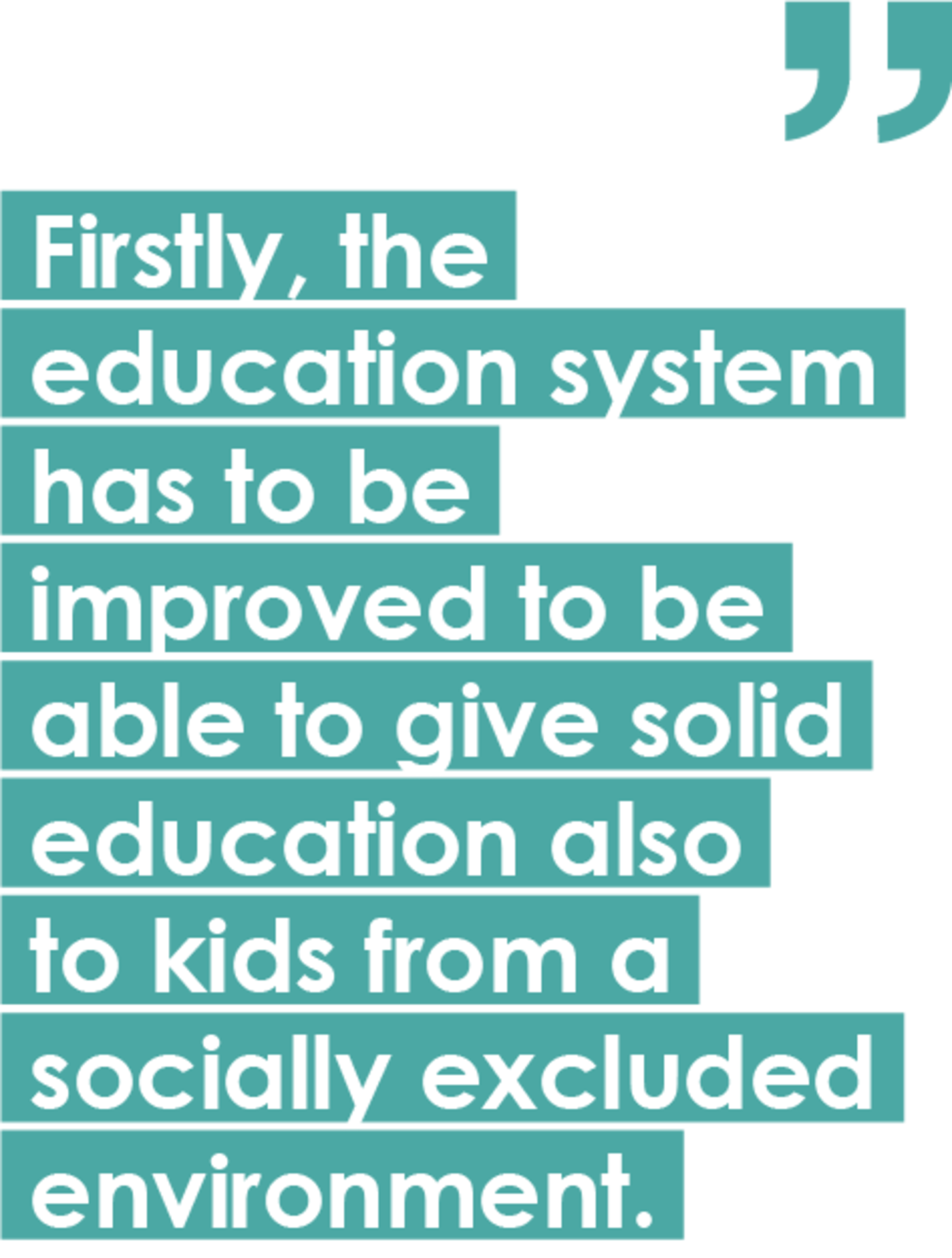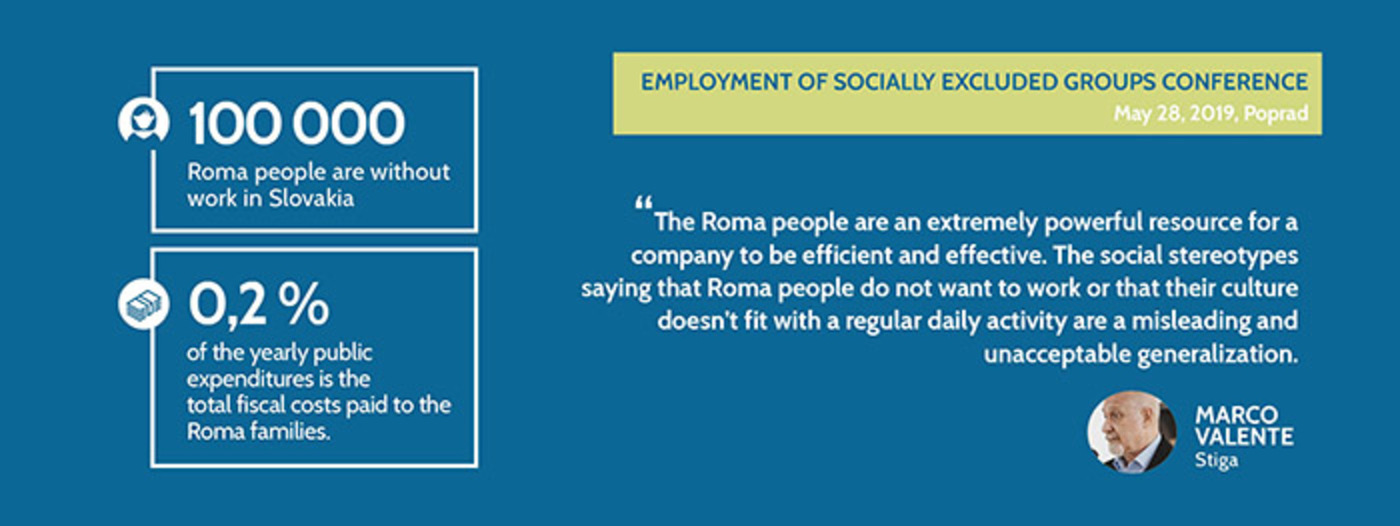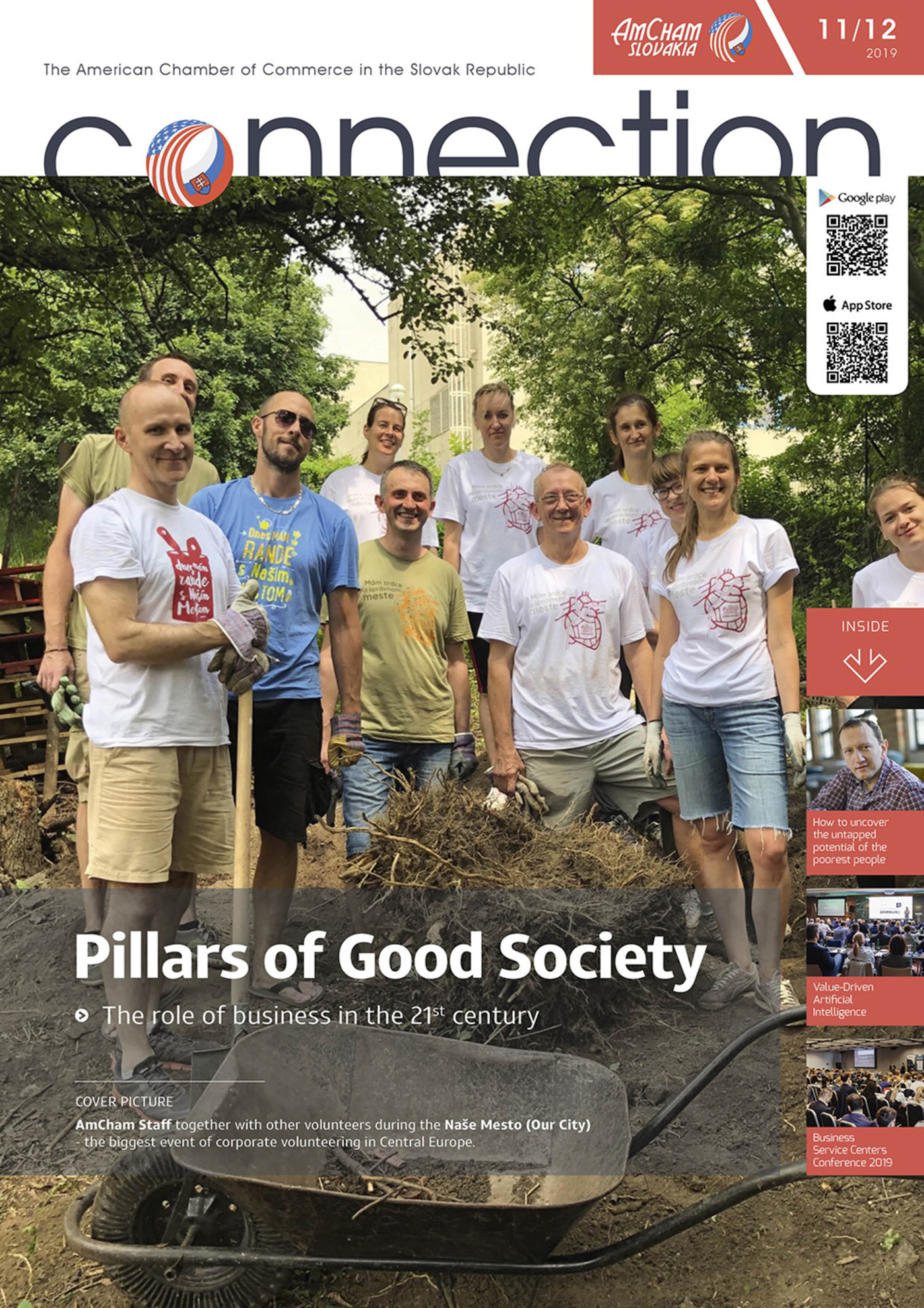What are the biggest barriers that people from marginalized communities face when trying to break the cycle of generational poverty?
The biggest problems of marginalized communities are high indebtedness, high rate of unemployment and long-term unemployment and low income of the families. That is caused by many different factors – mostly low level of education, skills and competencies, cultural differences and the loss of social skills and work habits, bad health condition of the population etc. Many families are living only on the social benefits and it is extremely difficult to break the circle of poverty.
When working with the long-term unemployed - do you feel that they are motivated and willing to change their lives and improve the future prospects of their children? Or is the prevailing mood one of resignation and desperation?
Most of our clients are very motivated to work but they are missing work habits. It is not that difficult for them to find a job but to keep it long-term is a challenge. This is the reason why many employers are skeptical because they are known as unsteady workers who use sick leaves way too often.
The second problem is their indebtedness. If the executor takes most of their salary, they lose motivation and they prefer switching back to social benefits. The system of repayment of debts needs to be changed.
What kind of assistance do you provide through the regional community centers?
People in Need Slovakia currently runs five community centers targeting socially excluded communities within the sector of Programs of Social Integration. The community centers offer a range of activities and services including pre-school preparation, low-threshold programs for children and youth, educational activities, tutoring and teaching (DoT), job and career counseling and community activities. We intensively cooperate with the municipalities and schools in the micro-regions where we operate. In addition to direct field programs and services, we also advocate for the integration of socially excluded citizens and respecting of their fundamental rights.
 We specialize in employment counseling as a complex program, which consists of an individualized approach to the clients and their particular needs. To improve the quality of life of the target group we are helping them with:
We specialize in employment counseling as a complex program, which consists of an individualized approach to the clients and their particular needs. To improve the quality of life of the target group we are helping them with:
- Educational activities - focused on the development of elementary numeracy and literacy, hygienic habits, logic and soft skills
- Developing work habits and on the job skills
- Developing social, communication skills
- Developing financial literacy
- Accompanying the client
- Obtaining and maintaining legal work
- After-placement support
- Improving the level of housing
- Raising awareness of the majority of employment of the Roma population in Slovakia
Are the employers in the regions interested in cooperation? How do you persuade them to give people from marginalized groups a chance?
Employers in many regions face lack of workforce, mainly low skilled employees. They have two options how to solve it – either they bring foreign workforce or they give a chance to people who are long-term unemployed, somehow disadvantaged in the labor market.
Both options have their good and bad side but I am happy to say that most of the employers perceive investment in the local workforce, even marginalized socially excluded groups, as a long term investment in the development of the region.
Business is business and of course, a company must see a benefit in this strategy, not only its positive social impact. We are building our cooperation with employers on the basis of the support we are giving not only to our clients but also to the employer and other employees.
 I can imagine that finding a job opportunity is not the final stage in your assistance. What steps need to be taken in order to make a successful transition from long-term unemployment to a steady employment and income more likely?
I can imagine that finding a job opportunity is not the final stage in your assistance. What steps need to be taken in order to make a successful transition from long-term unemployment to a steady employment and income more likely?
Finding a job opportunity is actually the result of many previous activities, which lead to change a long term unemployed person or a person with no work experiences at all, to an employable person. After successful placement we continue in our support to the clients, we monitor them on a regular basis, help them to overcome any potential crisis, to solve problems in the workplace. We also provide sensitization trainings for team leaders, teaching them how to handle the cultural differences and how to communicate efficiently with marginalized Roma colleagues. We help clients with financial planning and anti-debt support, which is mostly the biggest difficulty in long-term employment.
Can you mention some examples where you managed to establish a mutually beneficial cooperation with a business in one of the regions?
In cooperation with the company Stiga Slovakia we run the Integration Program for Employing Socially Excluded Roma as a functional model that tackles the unemployment of Roma in socially excluded communities. The innovative nature of the program lies in the introduction of a new commercial model for employment of disadvantaged job seekers. The organization prepares low-skilled workers that have long been considered unemployable, especially because of low levels of literacy, lack of work habits and skills. Their only work experience comes from the area of public and illegal work, and for many of them, the program may be the first chance for legal employment. In the pilot verification phase of the program (January - April 2018) we managed to employ ten clients.
After the end of the pilot phase, the cooperation with the clients was evaluated and, based on the identified problems, two sensitization training courses for executives were created and implemented. Their content was, in particular, to understand the specifics of the target group compared to the majority and to make mutual communication and cooperation more effective. The clients from two localities were motivated and passed the social skills and elementary numeracy and literacy trainings. In the second phase of the program (November 2018 - April 2019) we have managed to employ 42 clients.
We are negotiating a similar model of employment with other employers not only in the Spiš region but also in the Banská Bystrica region. In October 2019 we established the Employment Agency – a joint venue of People in Need Slovakia and the Banská Bystrica Self-governing region (BBSGR) which will provide employment services for long-term unemployed people (not only registered unemployed) in Lučenec and surrounding areas. This model of cooperation, funded primarily by BBSGR, is being tested with all the stakeholders in the region – including the Labor office, municipalities, community centers, field social workers, employers and schools etc.
What single policy change at the national level could have the biggest impact on improving the situation of marginalized groups?
There are numerous obstacles which need to be solved. Firstly, the education system has to be improved to be able to give solid education also to kids from a socially excluded environment. Labor offices need to adopt a more individualized approach in helping clients find employment and employers also need bigger (not only financial) support from the government when it comes to employment of disadvantaged groups. Very important changes also need to be done in the execution law.




Follow us